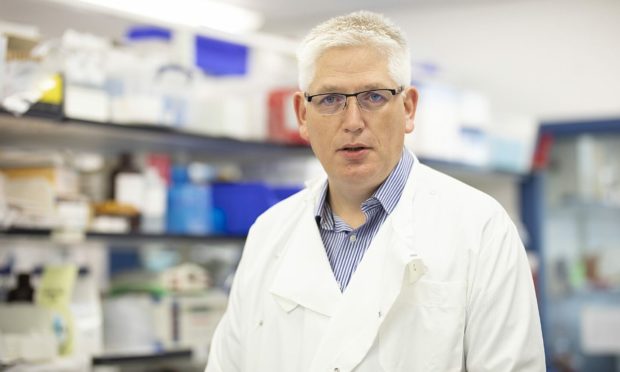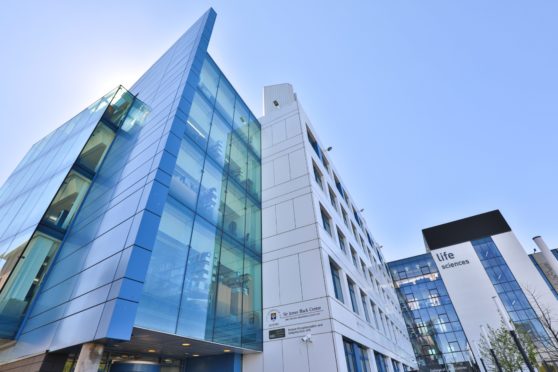A group of fundraisers from Dundee University have raised more than £40,000 for Parkinson’s research.
The team cycled, ran, hula-hooped and baked throughout June to raise money for the cause.
Every 30 days, someone in Scotland is diagnosed with Parkinson’s, which is why the university chose to launch the 30-day challenge.
The team said they were ecstatic to have smashed their original target of £10,000.
Television presenter Lorraine Kelly gave her support to the effort with a video message encouraging people to support the university fundraisers.
Professor Dario Alessi, from the university’s school of life sciences, said: “This is an incredible achievement and on behalf of everyone at the university I would like to thank those who have raised money to support our work.
“The funds raised by the 30 Days Challenge will allow our dedicated Parkinson’s research scientists to purchase state-of-the-art technology to help understand the disease in all its complexity.
“Our world-renowned experts are passionate and determined about improving treatments and outcomes for patients.
“These donations will help to advance our Parkinson’s research further and faster.”
Parkinson’s Research
Parkinson’s disease is a neurodegenerative illness which has no cure and no way of being slowed down.
The most successful drug to manage Parkinson’s – Levodopa – was developed 60 years ago.
Since then there has been no major breakthrough in the management or treatment of the disease.
Dundee University is leading research and hosting world-renowned experts who are dedicated to improving understanding of the condition.
Their efforts are backed by the Dundee Parkinson’s Research Campaign, which was launched in 2019 to establish Dundee as a global centre for Parkinson’s research.
Professor Alessi added: “Parkinson’s is a devastating condition and is one that has proven incredibly difficult for the scientific community to research.
“But with the commitment of everyone here, and the support of the public, I am confident we can make strides in our work that will support our quest to learn more about and develop new treatments for this disease.”










